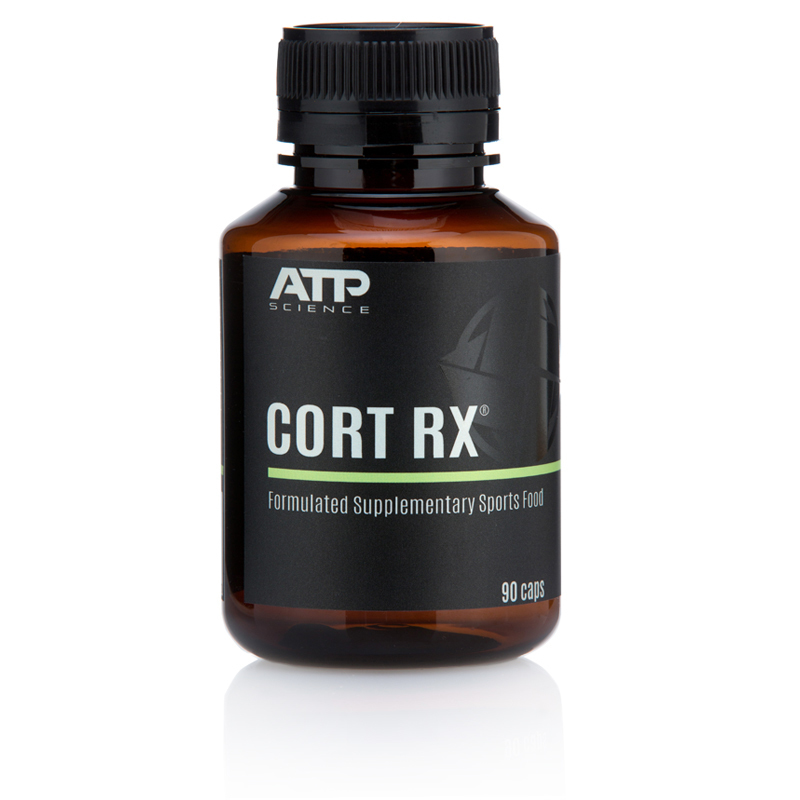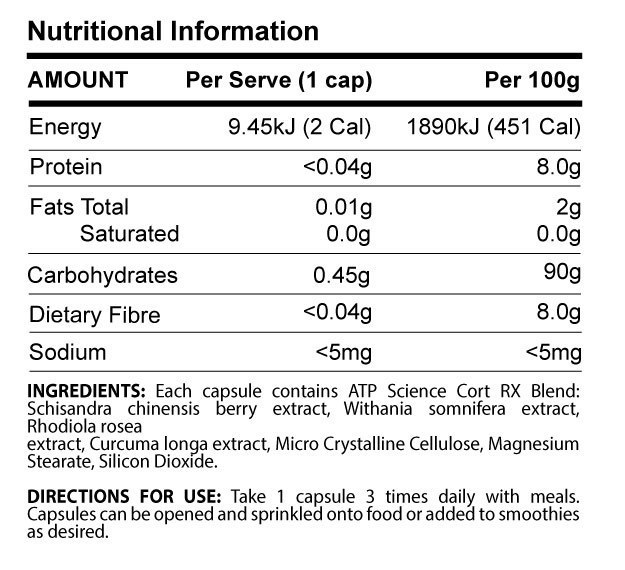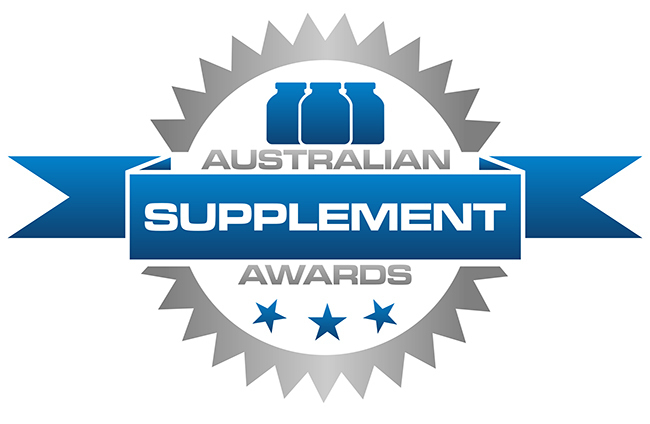ATP Science – Cort RX
$65.00
Out of stock
Description
PRODUCT DESCRIPTION
Cort RX – Adrenal Cortex Support
Everybody experiences stress. There is no escaping it. Some people thrive and cope with the stress, while other suffer the effects of stress. Cort RX won’t eliminate your stress but it will help you cope with it.
Stress affects our body in different ways but chronic stress, such as finances, relationships and sometimes where you work are new to the human body. Strangely, we actually evolved as stress being our best friend. If we were getting chased by a Saber-toothed tiger, being stressed would have saved our life! Massive amounts of adrenalin and cortisol would have been released by the body so as we could (hopefully) out run or out fight the beast. If we didn’t have that response, we would have been the big cat’s lunch.
“I love this product i’m finally sleeping more than 3 hrs at a time it’s amazing!!!!” – Liz Johns
Now days, most of us aren’t being chased by big cats but our genes are still programmed that way. The ‘beast’ chasing us today is chronic, long term (day/week/year) stress unlike the tiger’s ‘minutes’ of stress. This means our body is pumping out lots more cortisol (a stress hormone) than we know what to do with. Long term elevated cortisol has catastrophic effects throughout the body such as increased fat mass, loss of muscle mass, a reduced immune system and much more. Yet here we are with the mortgage, stressful job and even environmental stress we simply can’t escape. We just have to manage these unavoidable stressors better.
THE HYPOTHALAMIC PITUITARY ADRENAL (HPA) AXIS
To fully understand how to influence hormonal secretions and activities we must first understand the big picture and know the natural cycles that dictate our body’s priorities between thrive or survive.
The Hypothalamus in our brain collects data from our body to inform of potential stressors. Our body can’t afford to wait and see if something is life threatening before it reacts, therefore it will trigger a stress response, proactively, just in case. The immune system, inflammatory chemicals, emotional stress, fear, pain, temperature extremes, toxicity, training hard, caffeine etc. will all activate the Hypothalamus to initiate a survival response. The end result is that the hypothalamus sends this stress message to our pituitary gland, which then signals the adrenals to pump out cortisol. This of course is a natural response but too much cortisol is very bad for our health.
Cortisol has a number of jobs to do to aid in short term and long term survival:
- In the short term, cortisol helps to raise blood sugar by gluconeogenesis and insulin resistance. It achieves this by breaking down muscle tissue.
- It also switches off most of the internal stress activators if they have been temporarily spiked by a low dose trigger like a microorganism or an allergen.
- Cortisol switches off the activated immune system and stops the reaction.
- Cortisol switches off the inflammatory response (by the way, cortisone and hydrocortisone creams for arthritis, asthma and allergic reactions are drug versions of cortisol).
- Cortisol blocks the sleepy chemical serotonin and wakes you up (good if the tiger is chasing you, bad if you want to go to sleep)
- Cortisol raises blood pressure and blood volume through fluid retention in case of injury. But bad if you want a toned body!
Daily fluctuations of cortisol (figure 1.)
Cortisol secretion in the morning blocks sleep chemicals to wake you up so you couldn’t possibly roll over and go back to sleep now that you are awake; while inhibiting inflammation relieving aches and pains, sinus, hayfever and rashes. As evening comes, cortisol drops dramatically and sleep chemicals rise so you are forced into a nice deep sleep. While sleeping cortisol drops extremely low and the immune system and other regenerative and anabolic systems fire up to grow, repair and generally clean up. This is what is supposed to happen in healthy individuals.

Acute stress (figure 2.)
Cortisol spikes when needed through the day to help overcome stressors before returning to normal. This how a health person copes with day to day stressors. As you can see from the graph example below, this ‘individual, encounters normal daily stressors, but by night time, cortisol levels are normal and this individual should enjoy a good night’s sleep and awake refreshed.

Chronic stress (figure 3.)
Most people unfortunately fit into this group. Start waking up with high cortisol and it spikes from there and never really drops enough all day and night for chronic elevated cortisol exposure. This results in an exaggerated and prolonged cortisol level. You now are gaining fat and breaking down muscle tissue as well as not sleeping well and no one wants that.

Hyper-reactive cortisol responses (figure 4.)
People with this cortisol dysregulation are often born pre-wired this way or they acquire this pattern by developing disorders like Post Traumatic Stress Disorder (PTSD). These individuals suffer from insomnia, depression borne from anxiety. Due to cortisol resistance you have learnt to release extra cortisol in response to stress and subsequently an exaggerated stress response. Constant excessive exposure leads to cortisol resistance and low levels now fail to register so the body pumps out more and more. This causes a vicious cycle that results in a phase of conservation or adrenal fatigue. Referred to as melancholic depression in literature and responds to serotonin preserving antidepressants.

Conservation of cortisol responses (figure 5.)
These individuals often suffer from Fibromyalgia or Chronic Fatigue Syndrome, shift workers, busy mums and ‘burnt out’ individuals. They may also suffer co-morbities such as autoimmune diseases, excessive inflammation, allergies, fatigue and generalised pain. They suffer from light sleep and seem more awake before bed than when they rose. They may wake unrefreshed, despite sleeping for 8 hours. These individuals need stimulants to get going and often states things like ‘I need my coffee to get going in the morning’ or ‘I can’t function without my coffee’. They may wake with pain that gradually leaves as the day progresses.

Hypo reactive (adrenal fatigue) (figure 6.)
These individuals may be born with congenital defect, have a chronic autoimmune disorder, suffer from extreme exhaustion or may have Chronic Fatigue Syndrome (CFS). Hypersomnia (excessive sleeping), generalised aches and pain, chronic inflammation, depression borne from apathy and fatigue, all associated with low cortisol and excessive serotonin activity. Referred to as atypical depression in literature and doesn’t respond to serotonin preserving antidepressants such as Prozac.

THE KEY IS TO PROVIDE A STRATEGY TO MANAGE THE HPA AXIS.
- Remove the stress burden as best you can. Remove the avoidable external stressors (people, places, pollutants, toxins etc.), identify and eliminate internal stressors (inflammation, immune, toxic load etc.)
- Adaptogenic herbs and foods. Help to restore adrenal cortisol secretions using adaptogenic herbs. Adaptogens help to normalize physiology regardless of the trigger and direction of change. Meaning when you are up and anxious it will calm you down, but when down and flat it will pick you up and help to normalise cortisol levels.
- Nutritional support to support stable state and base foundation with specific nutrition.
Remove burden
- Avoid stress from people and places you can avoid
- Immune activation – toxicity, allergies, intolerances, infection, infestation and autoimmunity
- Inflammation – immune activation, injury and stress
- Toxic exposure – chemicals, colourings, additives, preservatives, fertilizers, pesticides, drugs, smoking, alcohol etc.
- Electromagnetic radiation
ADAPTOGENIC HERBS ALL OF WHICH ARE FOUND IN THE CORT RX
Schisandra reduces anxiety and lowers cortisol
Schisandra has been shown to be a potent anxiolytic, reducing anxiety during times of physical and mental stress. Schisandra may reverse stress-induced anxiety level, by modulating stress-induced changes to the HPA (hypothalamic-pituitary-adrenal) axis, cortex monoamine transmitters and cortisol.
Schisandra chinensis
Schisandra chinensis is an adaptogen, helping the body adapt to physical and mental stress. It improves dexterity, focus and co-ordination. Schisandra corrects respiratory acidosis and improves performance. One study on thoroughbreds showed an improvement of 6 lengths in an 800m race.
Schisandra improves physical performance
Schisandra chinensis has been shown to exhibit a remarkable effect on the physical performance of race horses. When treated with Schisandra, horses were able to complete the 800 m in a significantly shorter and the speed reached by the Schisandra-treated horses was also significantly higher than when saline treated. This study indicated that Schisandra extract was able to induce a greater response to physical effort. This was translated into a decrease of the time (1.8 s less) for the completion of the 800m race, equivalent to an improvement of 6 lengths in an 800m race.
Schisandra improves mental performance
Schisandra enhances memory, focus and concentration span via cholinergic function and works as an acetylcholine esterase inhibitor, thereby preserving acetylcholine levels and activity in nerve synapses.
- Helps to adapt to all stressors
- Anti-anxiety
- Improve cognition and brain function
- Improves resilience
- Liver protectant
- Antioxidant
- Anti-inflammatory
Withania somnifera
Withania modulates HPA axis
Withania modulates the HPA axis to help you deal efficiently with stress before switching off the survival response and rebooting the HPA axis. Studies have shown Withania to be able to support effective negative feedback inhibition of cortisol release post stress and have a sparing effect on the adrenal gland; preserving adrenal cortisol and adrenal vitamin C levels.
Withania enhances Hypothalamic Pituitary Gonadal (HPG) axis
While controlling the HPA axis; Withania allows and encourages the HPG axis to fire for reproduction, regeneration and repair. While controlling the HPA axis; Withania enhances thyroid hormone production and activity.
Rhodiola rosea
Rhodiola has profound anti-anxiety and mood enhancing effects. Rhodiola helps to provide an efficient survival response to stress by supporting and enhancing athletic performance and brain function to help deal with life stressors and training etc. Rhodiola also protects the body from its own defence mechanisms like inflammatory mediators and catabolic activity of cortisol on muscle and bone. Rhodiola makes a brilliant adaptogen as it will pick you up if lethargic and calm you down if anxious.
Rhodiola has the following properties.
- Regulates cortisol activity and release
- Has a sparing effect on the adrenal gland, preserving adrenal cortisol and vitamin C
- Anti-catabolic protecting muscle and bone from breakdown
- Elevates mood and coping mechanisms
- Reduces anxiety and panic
- Reduces pain
- Anti-inflammatory
- Liver protectant
- Antioxidant
Turmeric (Curcuma longa)
Turmeric will take the burden off the whole HPA axis and reduce the frequency and intensity of our survival response while supporting genuine energy levels and quality of life.
- Dampens down innate defence mechanism
- Sparing effect on adrenals and HPA axis
- Regulates cortisol response to stress
- Improves resilience
- Anti-inflammatory
- Anti-oxidant
- Liver protectant
- Anti-anxiety and raises mood
If you feel you have cortisol dysregulation, try to reduce the stressors in your life. Easier said than done right? If you can’t spend your days on the beach, you need to strengthen your resistance to the damaging effects of either low or high cortisol levels. Adaptogens perform this action inside your body to help you get the most out of your life.

2016 Australian Breakout Supplement of the Year Award
These statements have not been evaluated by the Food and Drug Administration. These products are not intended to diagnose, treat, cure, or prevent any disease.
- K. Chandrasekhar et al. A Prospective, Randomized Double-Blind, Placebo-Controlled Study of Safety and Efficacy of a High-Concentration Full-Spectrum Extract of Ashwagandha Root in Reducing Stress and Anxiety in Adults. K. Chandrasekhar. Indian J Psychol Med. 2012 Jul-Sep; 34(3): 255–262
- Singh N, Bhalla M, de Jager P, Gilca M. An overview on ashwagandha: a Rasayana (rejuvenator) of Ayurveda. Afr J Tradit Complement Altern Med. 2011;8(5 Suppl):208-13. doi: 10.4314/ajtcam.v8i5S.9. Epub 2011 Jul 3. Review.
- Ahmad MK1, Mahdi AA, Shukla KK, Islam N, Rajender S, Madhukar D, Shankhwar SN, Ahmad S. Withania somnifera improves semen quality by regulating reproductive hormone levels and oxidative stress in seminal plasma of infertile males. .Fertil Steril. 2010 Aug;94(3):989-96. doi: 10.1016/j.fertnstert.2009.04.046. Epub 2009 Jun 6.
- Al-Qarawi AA1, Abdel-Rahman HA, El-Badry AA, Harraz F, Razig NA, Abdel-Magied EM.The effect of extracts of Cynomorium coccineum and Withania somnifera on gonadotrophins and ovarian follicles of immature Wistar rats. Phytother Res. 2000 Jun;14(4):288-90.
Additional information
| Weight | 0.1 kg |
|---|---|
| Dimensions | 7 × 7 × 12 cm |




Reviews
There are no reviews yet.